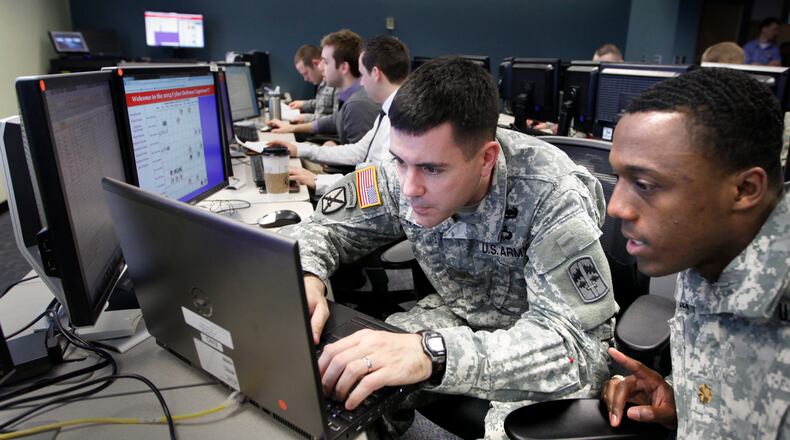RELATED: Businesses give Air Force decision-makers their best pitch
“The mission of the QED-C is to identify gaps and support enabling technology research and development to enhance the quantum ecosystem in order to facilitate industry coordination and interaction with U.S. government agencies and to provide the government with a collective industry voice in guiding R&D investment priorities, use cases and quantum workforce issues,” a release from AFRL said Wednesday afternoon.
Quantum computers use quantum mechanical phenomena to achieve computing speed and power far beyond what classical computers have been able to achieve with the manipulation of individual bits. This new kind of computing uses quantum bits or “qubits.”
The hope is that this new power will lead to advances in research, medicine, science and defense.
Nearly 100 organizations have joined the QED-C including big corporations, academic institutions, government agencies, start-ups and more.
The consortium is led by the National Institute of Standards. “AFRL joins the ranks of the Office of Science and Technology Policy, the Department of Energy, and the National Science Foundation as government members and serves as the Department of Defense representative organization on the QED-C,” the lab said.
MORE: Wright-Patterson readies to open new gate
AFRL is the scientific research and development center for the Air Force, playing a role in the discovery, development, and integration of affordable war-fighting technologies for the air, space, and cyberspace force.
“AFRL has long recognized quantum information science as a game-changing technology that has far-reaching implications on national security and has key R&D programs in quantum timing, sensing, communications and computing,” AFRL’s release said.
“It is a tremendous honor for AFRL and the Information Directorate to serve as a representative to give strategic guidance to the consortium,” Col. Timothy Lawrence, director of AFRL Information Directorate, said in the release.
The Information Directorate is the lead for AFRL on the QED-C and is developing the Open Innovation Center at the Griffiss Business and Technology Park in Rome, N,Y.
That center is scheduled to open in April 2020 and will allow AFRL to collaborate with non-traditional and international partners, small business and academia.
About the Author

